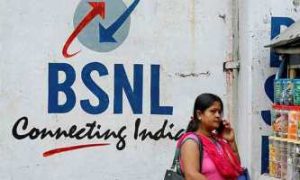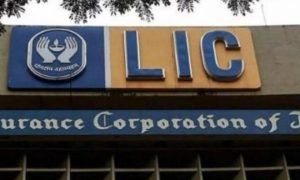The GST Council recommends to reduce tax rate on husk of pulses to nil, and on ethyl alcohol to 5 per cent
The GST Council, which is headed by the Union finance minister and comprises representatives of all states and UTs, on Saturday decided to reduce tax rates on the husk of pulses, including chilka and concentrates, to nil, and on ethyl alcohol to 5 per cent. The GST rate has not been increased on any item during the Council’s 48th meeting, which was conducted via videoconferencing.
According to an official release, the GST Council has recommended reducing the GST rate on ‘husk of pulses including chilka and concentrates including chuni/churi, khanda’ from 5 per cent to nil, while that on ‘ethyl alcohol supplied to refineries for blending with motor spirit (petrol)’ to 5 per cent from 18 per cent currently.
Mahesh Jaising, partner and leader (indirect tax) at Deloitte India, “In line with previous GST Council meetings, with a focus to address and avoid potential disputes, clarifications regarding rate of GST applicable on various categories of goods and services have been issued, including cases where reduced rates apply, have been approved.”
The GST Council also clarified that Rab (rab-salawat) and fryums that are manufactured using the process of extrusion attract GST at the rate of 18 per cent each.
It also said the higher rate of compensation cess of 22 per cent is applicable to motor vehicle fulfilling all four conditions, namely, it is popularly known as SUV, has engine capacity exceeding 1500 cc, length exceeding 4000 mm and a ground clearance of 170 mm or above.
Abhishek Jain, partner (indirect tax) at KPMG in India, said, “The issue of the applicable rate of compensation cess for SUVs/ MUVs has been in talks for a while. This issue seems to have been put to a rest with the GST Council specifying the four conditions for levy of 22 per cent GST compensation cess levy.”
The Council also clarified that the goods falling in the lower rate category of 5 per cent under schedule I of notification No. 1/2017-CTR imported for petroleum operations will attract lower rate of 5 per cent and the rate of 12 per cent shall be applicable only if the general rate is more than 12 per cent.
“No GST is payable where the residential dwelling is rented to a registered person if it is rented it in his/her personal capacity for use as his/her own residence and on his own account and not on account of his business,” according to the official release.
It also said incentive paid to banks by the central government under the scheme for promotion of RuPay Debit Cards and low value BHIM-UPI transactions are in the nature of subsidy and thus not taxable.
The GST Council also decided to include the supply of mentha arvensis under the reverse charge mechanism as has been done for mentha oil. The reverse charge is a mechanism where the recipient of the goods or services is liable to pay GST, instead of the supplier.
Sanjeev Sachdeva, partner at Luthra and Luthra Law Offices India, said, “No new taxes or increase in rates is a relief for industry and consumers. It is in line with the buoyancy in recent months in GST revenues. Deferment on decision on taxing the growing gaming industry means that the uncertainty surrounding this industry will continue, potentially hampering its growth in India.”
The Council conducted its 48th meeting on Saturday via videoconferencing.
The GST Council also recommended to decriminalise three kinds of offences — obstructing or preventing any officer in discharge of his duties; deliberate tempering of material evidence; and failure to supply information.
It also raised the threshold tax amount limit for launching a prosecution in any criminal offence defined under the GST laws from Rs 1 crore to Rs 2 crore for all offences except fake invoices.



































